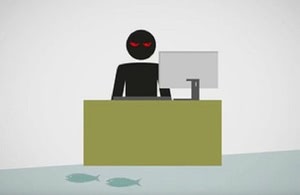Beware of fraudsters targeting your student loan payments

Be on your guard against fraudsters.
Fraudsters often target students with bogus emails and SMS around the three loan instalment periods in September, January and April each year.
Here’s our top tips:
-
Online fraudsters are aware that most students will be receiving their first payment soon, you should keep an eye out for any emails or texts you think could be fraudulent.
-
We’ll never ask you for your personal information or bank details by email or text message. If you get an email asking for these details you should send it to us at [email protected].
-
If you or your sponsor(s) get an email about student finance that you think is a scam you should send it to us at [email protected], as this allows us to close the site down and stop students from being caught out.
-
You shouldn’t post messages to social media that will let people know you’re getting your student finance payment soon, this could make you a target for online fraudsters!
The Student Loans Company oversees student finance on behalf of the Government and devolved administrations across the UK.
In the last few years their Counter Fraud Services team have stopped over £500,000 of student funding being stolen through phishing scams and in the 2017-2018 financial year alone, the team prevented £13.2 million of taxpayers’ money from being paid out by identifying fraudulent activity.
Spotting a phishing email isn’t always easy but the Student Loans Company has 5 fraud facts to help:
-
Be suspicious of any requests for personal or financial information. SLC or Student Finance England (SFE) will never ask you to confirm your bank details or login information by email.
-
Phishing emails are often sent in bulk and are unlikely to contain both your first and last name, they commonly start: ‘Dear Student’.
-
Check the quality of the communication – misspelling, poor punctuation and bad grammar are often tell-tale signs of phishing.
-
Look out for messages that express a sense of urgency like ‘failure to respond in 24 hours will result in your account being closed’ these types of messages are designed to make you act quickly, without giving your actions a second thought.
-
Anyone who receives a suspicious email they think may be a scam should send it to [email protected]. SLC can investigate the site and ensure it is shut down, to help protect other students.
Watch our ‘What is Phishing?’ film for more information.
For further information please contact:
Media Enquiries
Email: [email protected]
Press Office: 0141 306 2120
Out of Hours: 07768 607 612
Published 13 September 2019












Responses